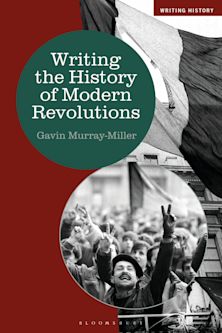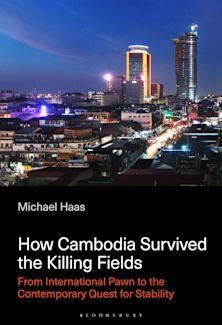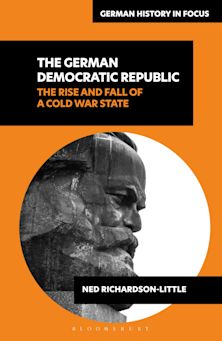- Home
- ACADEMIC
- Politics & International Relations
- Political History
- Orientalism, Liberalism and Colonial Governmentality
Orientalism, Liberalism and Colonial Governmentality
Deconstructing the Imperialized Historiography of Modern South Asia
Orientalism, Liberalism and Colonial Governmentality
Deconstructing the Imperialized Historiography of Modern South Asia
You must sign in to add this item to your wishlist. Please sign in or create an account
Description
This book explores the formation of contemporary South Asia as a geopolitical metaphor, psycho-cultural concept, and historical trope. It traces the region's colonial past, focusing on the evolution of its semantic and semiotic meanings, particularly through the lens of Michel Foucault's methods of genealogy and archaeology. The book examines how Orientalism and liberalism, key elements of colonial power and epistemology, shaped the conception of modern South Asia. It argues that these discourses were not isolated but intertwined, shaped by Edmund Burke's ideas on imperial rectitude, the utilitarian reform agenda focused on "improvement," and Victorian notions of morality and civility.
Through this analysis, the book shows how the British, using the coercive power of colonialism, produced knowledge about India, blending post-Enlightenment values with perceptions of the colonized periphery. This mix of metropolitan ideals and colonial narratives shaped the understanding of South Asia in ways that were deeply ideological and epistemic. Ultimately, the book asserts that the conception of modern South Asia was formed through a complex interplay of colonial knowledge, which sought to frame the region within a distorted, imperial worldview. By mapping this intersection of power, knowledge, and culture, the book provides a critical genealogy of the modern South Asian identity.
Table of Contents
Chapter 1: Colonial Psychology and the Genealogies of the Modern Idea of South Asia
Chapter 2: The Age of Reason, European Exceptionalism and the Making of the Phenomenon of the Indian Difference
Chapter 3: Orientalism and the Romanticised Fossilization of an Antiquarian Idea of South Asia
Chapter 4. The Departure of Orientalist Philological Utopia and the Arrival of Imperial Liberalism: The Transformation of South Asia from a Pluralistic Polity to a Divided Anthropological Geography
Conclusion: The Fractured Anthropographies and the Postcolonial Predicament in South Asia?
Index
About the Author
Product details
| Published | 30 Apr 2025 |
|---|---|
| Format | Ebook (Epub & Mobi) |
| Edition | 1st |
| Extent | 336 |
| ISBN | 9789356405332 |
| Imprint | Bloomsbury Academic India |
| Publisher | Bloomsbury Publishing India Pvt. Ltd |
About the contributors

ONLINE RESOURCES
Bloomsbury Collections
This book is available on Bloomsbury Collections where your library has access.


































